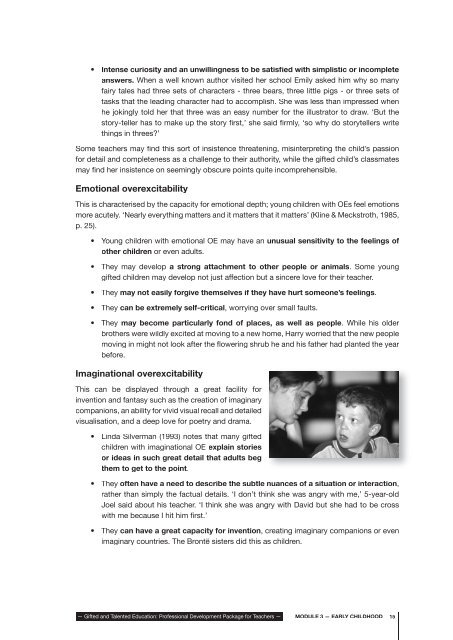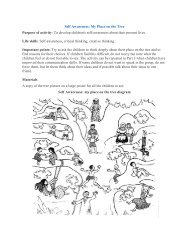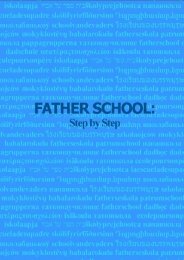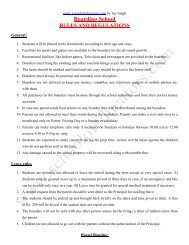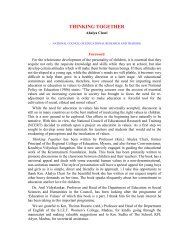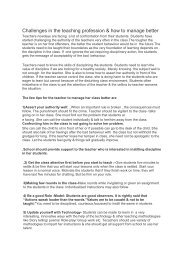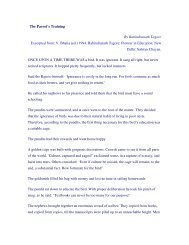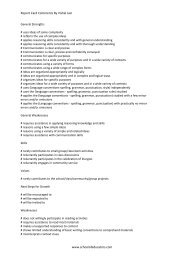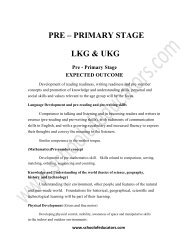Module 3 - School of Educators
Module 3 - School of Educators
Module 3 - School of Educators
- No tags were found...
You also want an ePaper? Increase the reach of your titles
YUMPU automatically turns print PDFs into web optimized ePapers that Google loves.
• Intense curiosity and an unwillingness to be satisfied with simplistic or incompleteanswers. When a well known author visited her school Emily asked him why so manyfairy tales had three sets <strong>of</strong> characters - three bears, three little pigs - or three sets <strong>of</strong>tasks that the leading character had to accomplish. She was less than impressed whenhe jokingly told her that three was an easy number for the illustrator to draw. ‘But thestory-teller has to make up the story first,’ she said firmly, ‘so why do storytellers writethings in threes?’Some teachers may find this sort <strong>of</strong> insistence threatening, misinterpreting the child’s passionfor detail and completeness as a challenge to their authority, while the gifted child’s classmatesmay find her insistence on seemingly obscure points quite incomprehensible.Emotional overexcitabilityThis is characterised by the capacity for emotional depth; young children with OEs feel emotionsmore acutely. ‘Nearly everything matters and it matters that it matters’ (Kline & Meckstroth, 1985,p. 25).• Young children with emotional OE may have an unusual sensitivity to the feelings <strong>of</strong>other children or even adults.• They may develop a strong attachment to other people or animals. Some younggifted children may develop not just affection but a sincere love for their teacher.• They may not easily forgive themselves if they have hurt someone’s feelings.• They can be extremely self-critical, worrying over small faults.• They may become particularly fond <strong>of</strong> places, as well as people. While his olderbrothers were wildly excited at moving to a new home, Harry worried that the new peoplemoving in might not look after the flowering shrub he and his father had planted the yearbefore.Imaginational overexcitabilityThis can be displayed through a great facility forinvention and fantasy such as the creation <strong>of</strong> imaginarycompanions, an ability for vivid visual recall and detailedvisualisation, and a deep love for poetry and drama.• Linda Silverman (1993) notes that many giftedchildren with imaginational OE explain storiesor ideas in such great detail that adults begthem to get to the point.• They <strong>of</strong>ten have a need to describe the subtle nuances <strong>of</strong> a situation or interaction,rather than simply the factual details. ‘I don’t think she was angry with me,’ 5-year-oldJoel said about his teacher. ‘I think she was angry with David but she had to be crosswith me because I hit him first.’• They can have a great capacity for invention, creating imaginary companions or evenimaginary countries. The Brontë sisters did this as children.— Gifted and Talented Education: Pr<strong>of</strong>essional Development Package for Teachers — MODULE 3 — EARLY CHILDHOOD15


